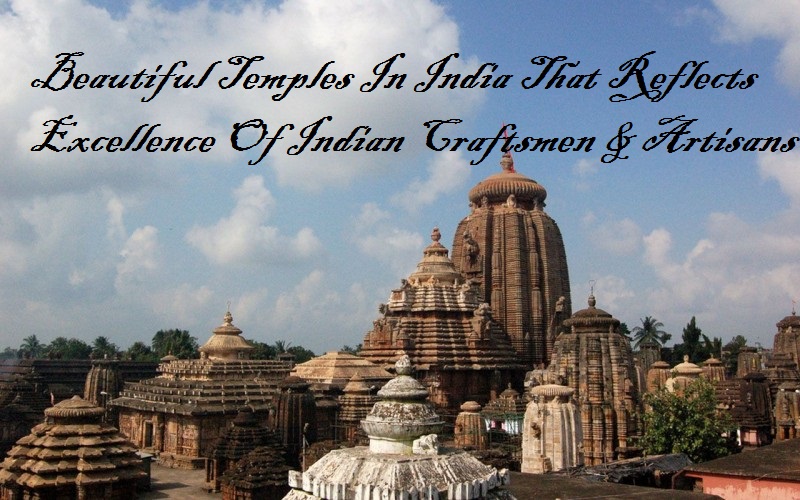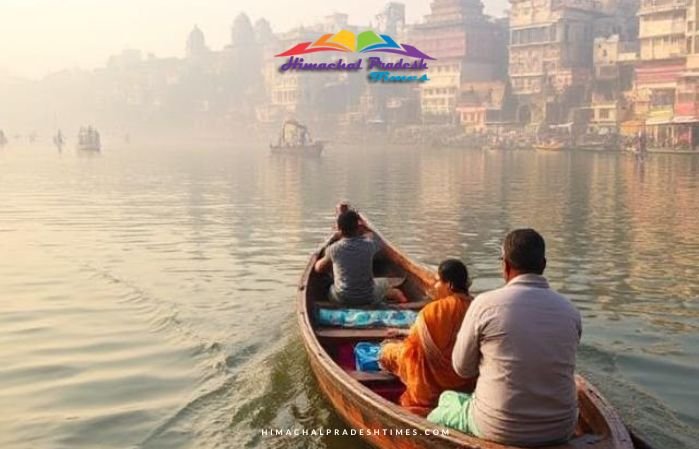India is a country of varied traditions and culture. With its rich history and its significant cultural background, the country boasts its ancient architectural and historical times in pride. The country is full of temples, the places where people offer worship to the Gods and Goddesses. Since centuries, India is full of Indian temple which reflects the belief of the Indians on Gods.
This Indian Temple also gradually emerged as the sites where the artisans showcased their art and crafted and designed rocks and other materials to come up with magnificent designs on the walls and the interiors of the temples. Dance, music, painting and the popular belief of the era call can be seen crafted on the walls of the ancient temples, which today serve as the rich heritage of the nation.

Many people come up with different questions about India and its connections with temples; one of the most common questions is How to Find Temple in India. Today, these temples remind us of our rich and excellent cultural and architectural radiance of craftsmen of those days.
There are different types of temples in India. Or in other words, we can say that every temple of India has its own special feature. Let’s explore some of the most popular ones, where you can and you must definitely pay a visit to:
Oldest Temple In India
If you want to see the oldest temple in India, then come down to Brihadeshwara Temple, Tanjore, Tamil Nadu. Built-in 1002 A.D, by King Rajaraja Chola of the Chola Dynasty, this temple is dedicated to Lord Shiva and is one of the finest examples of the Dravidian art, popular since that era. It is a great example of the rich architectural and sculptural sense of craftsmanship of the people belonging to that era.

The temple is composed of much-interconnected structures such as the Nandi pavilion, a pillared portico and a large hall that adores the beauty of the era. It has a Vimana or roof, 66 meters high, making it one of the most distinctive temples of India.
Golden Temple India
If you think Indian temple is only adorned with architecture, painting, and engravings then probably this temple will give you a reason to think about it again. Visit the Golden Temple India, located in Amritsar, Punjab. The temple is also known as the Sri Harmandir Sahib. Its construction was started in December 1585 and was completed in August 1604. The holy shrine was constructed with the intention to build a place of worship for men and women from varied walks of life to come down and worship Gods with equality.

The temple has a distinguished identity for itself in the Indian history and since then it has been established as one of the most popular temples of the nation.
India Rat Temple
The temples of India are known for its variety and uniqueness has in store a lot of surprises too for you. The India rate temple, a temple of Karni Mata is located at Deshnoke, 30km away from Bikaner, Rajasthan, will amuse you with its uniqueness. The temple has 25,000 black rats living in it gleefully and people respect them, take their blessings and are not afraid of them at all. These rats are considered to be holy and are called as kababs. It draws people from distinct part of the country and the world as well.

The date of the construction of this rat temple India is not clearly defined, but it was built from 15th to 20th century by Maharaja Ganga Singh. It has a legendary architecture with marvelous marble façade and extensive gateway carvings that are too beautiful and intricate to take your eyes off.
Lotus Temple India
If you want to see a different form of an Indian temple, then this temple is definitely the one that you must pay a visit to. This is a Baha’i House Of Worship which was opened for public worship and visit in the year 1986 in December. This is also known as the Lotus Temple India for its lotus shape that is fascinating and marvelous. It reflects the Oneness of God, the Oneness of Religions and the Oneness of Mankind, which are the teachings of the Baha’i Faith.

This is a prominent attraction for tourists from around the world and from different parts of India. Located in Delhi, the capital of India, this temple is open to people from every background, culture, and religion. It is composed of 27 free-standing marble clad, lotus petal shaped structures that have nine doors and a central hall. The mesmerizing architecture and the beautiful shape of the temple is one of the top-most attractions of Delhi.
Read Also: Religious Places Visited During Next Visit To Himachal Pradesh
Richest Temple In India
India is rich not only in its heritage, historical background, and culture but also in monetary terms. This can be proved with the amount of charity that the richest temple in India earns per year. The Padmanabhaswamy Temple, Thiruvananthapuram, in Kerala is the wealthiest temple in the county. It possesses a wealth of around $20billion in six vaults of gold. One can imagine that amount very well!

It is an adobe of the golden statue of Lord Vishnu, which is worth of Rs 500 crore itself. The temple is adorned with antique gold ornaments, beautifully crafted gold crowns, golden bow, a sack full of diamonds and thousands of antique jewelry with emeralds. The golden necklace of the deity itself stands for 18ft long and weighs around 2.5kg.
Read Also: We Are Going To Visit The Manimahesh Yatra With Friend
Built with Dravidian architecture, this is beautiful in every sense. Its construction date is not known but it is speculated that the walls of the temple are associated with a 16th-century Gopuram, which indicates the age of the temple.
Visit these temples of India and explore the richness, vividness, and gorgeousness of Indian architecture, history and unique cultural identity.







